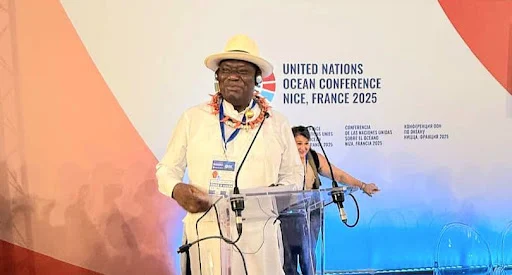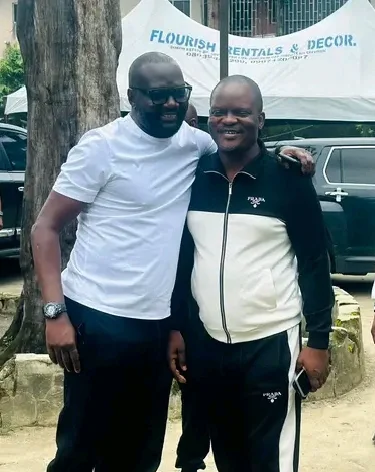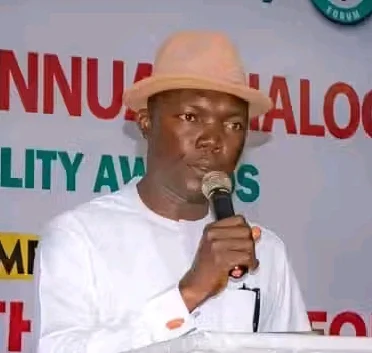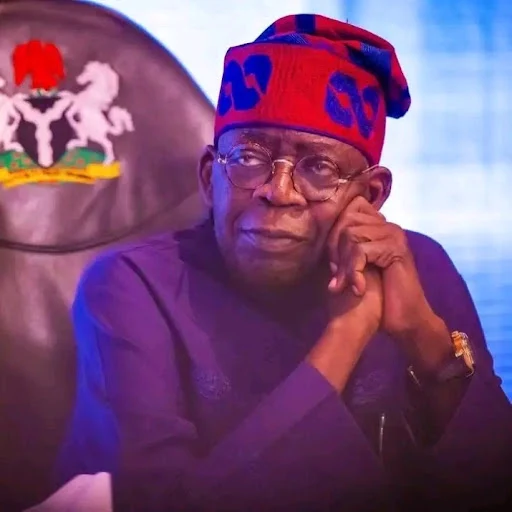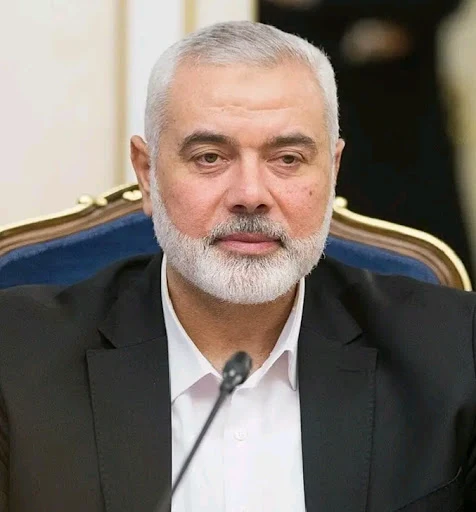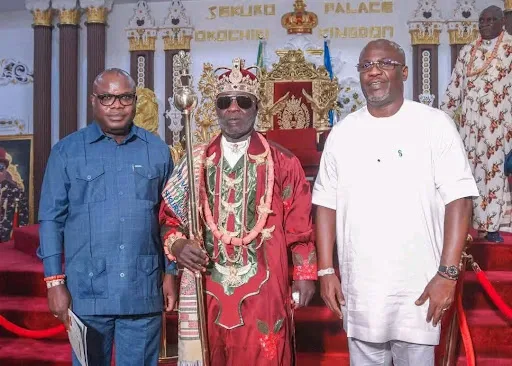Francis Tayor
The Palestinian militant group struggled to govern the Gaza Strip before launching a surprise attack on Israel in 2023. Now facing Israel’s military campaign to destroy it, Hamas’s future is in doubt, as is Gaza’s.
Summary:
Hamas is an Islamist militant group that spun off from the Palestinian branch of the Muslim Brotherhood in the late 1980s. It took over the Gaza Strip after defeating its rival political party, Fatah, in elections in 2006.
Governments including the United States and European Union have designated Hamas a terrorist organization over its attacks against Israel, which have included suicide bombings and rocket attacks.
Israel declared war on Hamas following its surprise assault on the country’s south in October 2023, the deadliest attack in Israeli history, and has killed many of the group’s senior leaders in recent months.
Introduction:
Hamas is an Islamist militant movement that has controlled the Gaza Strip for nearly two decades. It violently rejects the existence of Israel, which it claims is occupying Palestine. In October 2023, Hamas attacked southern Israel, killing nearly 1,200 people and taking more than 200 hostages. In response, Israel declared a war aimed at eradicating the group. The conflict has killed more than forty-thousand people as of October 2024, according to Palestinian officials in Gaza.
Dozens of countries, including the United States, have designated Hamas a terrorist organization over the years, though some apply this label only to its military wing. The United States has pledged billions of dollars in new military aid since the Israel-Hamas war began and remains Israel’s top weapons supplier.
Hamas’s most important ally in the region is Iran, but it has also received significant financial and political support from Turkey. Qatar hosts the Hamas political office and also provides it with financial resources, though with the knowledge and cooperation of the Israeli government. Hamas is meanwhile one component of Iran’s so-called axis of resistance, a regional network of anti-Israel partners that includes Palestinian Islamic Jihad, Lebanon’s Hezbollah, Yemen’s Houthis, and various militias in Iraq and Syria. Given these connections, many security experts fear that the Israel-Hamas war could engulf the region in a wider conflict.
Hamas’s rival party, Fatah, which dominates the Palestinian Authority and rules in the West Bank, has formally renounced violence, though it has not always upheld that vow in times of high Israeli-Palestinian tensions. The split in Palestinian leadership and Hamas’s unwavering hostility toward Israel diminished prospects for stability in Gaza ahead of the ongoing war, which has only cast the territory into further despair.
What are the group’s origins?
Hamas, an acronym for Harakat al-Muqawama al-Islamiya (“Islamic Resistance Movement”), was founded by Sheikh Ahmed Yassin, a Palestinian cleric who became an activist in local branches of the Muslim Brotherhood after dedicating his early life to Islamic scholarship in Cairo. Beginning in the late 1960s, Yassin preached and performed charitable work in the West Bank and Gaza, both of which Israel occupied following the 1967 Six-Day War.
Yassin established Hamas as the Brotherhood’s political arm in Gaza in December 1987, following the outbreak of the first intifada, a Palestinian uprising against Israeli occupation of the West Bank, Gaza, and East Jerusalem. At the time, Hamas’s purpose was to engage in violence against Israelis as a means of restoring Palestinian backing for the Brotherhood, which was losing political support to Palestinian Islamic Jihad (PIJ), a Gaza-based, Iran-sponsored organization that had begun pursuing terrorist operations against Israel.
Hamas published its charter in 1988, calling for the murder of Jews, the destruction of Israel, and in Israel’s place, the establishment of an Islamic society in historic Palestine. In what observers called an attempt to moderate its image, Hamas presented a new document [PDF] in 2017 that removed explicit references to killing Jews but still refused to recognize Israel. The revised charter also hinted that Hamas could accept a future Palestinian state along the borders established before the Six-Day War, which are generally recognized internationally as the borders of the West Bank and Gaza. The new document says only that the matter should depend on “national consensus.”
Hamas first employed suicide bombing in April 1993, five months before Palestine Liberation Organization (PLO) leader Yasser Arafat and Israeli Prime Minister Yitzhak Rabin signed the Oslo Accords. The historic pact established limited self-government for parts of the West Bank and Gaza under a newly created entity called the Palestinian Authority (PA). Hamas condemned the accords, as well as the PLO’s and Israel’s recognition of each other, which Arafat and Rabin officially agreed to in letters sent days before Oslo.
In 1997, the United States designated Hamas a foreign terrorist organization. The movement went on to spearhead violent resistance during the second intifada, in the early 2000s, though PIJ and Fatah’s Tanzim militia were also responsible for violence against Israelis.
Who are its leaders?
Hamas has a host of leadership bodies that perform various political, military, and social functions. General policy is set by an overarching consultative body, often called the politburo, which operates in exile. Local committees manage grassroots issues in Gaza and the West Bank.
Hamas’s Governing Structure:
An infographic showing Hamas's governing structure and which leaders have been killed, including Yahya Sinwar and Ismail Haniyeh
Sources: Counter Extremism Project; European Council on Foreign Relations; Meir Amit Intelligence and Terrorism Information Center; Palestinian Academic Society for the Study of International Affairs; CFR research.
Israel has targeted top Hamas officials since the movement was founded in the late 1980s. Israeli forces killed Sheikh Ahmad Yassin, Hamas’s founder, in 2004. In recent months, the war in Gaza has once again thrown the group’s leadership into disarray, as several of its high-ranking members have been killed. Ismail Haniyeh, who served as political chief since 2017, was killed in a suspected Israeli bombing in Tehran in July 2024. Israel also killed Hamas’s military leader, Mohammed Deif, in a strike on the southern Gaza city Khan Younis in the weeks prior.
In October 2024, Israel conducted a strike that killed several Hamas militants, including Yahya Sinwar, who replaced Haniyeh as political chief. Sinwar was believed to be an architect of the October 7 attack, along with Deif and Issa, and military analysts say his killing marked a major symbolic and operational success for Israeli forces. Sinwar previously headed Hamas’s military wing and served twenty-two years in an Israeli prison for masterminding the killing of two Israeli soldiers in 1988. He was among the more than one thousand Palestinian prisoners freed in 2011 in exchange for an Israeli soldier held by Hamas.
“Yahya Sinwar was a vicious and unrepentant terrorist responsible for the largest massacre of Jews since the Holocaust. At his direction, Hamas terrorists murdered Israelis, Americans, and citizens of more than 30 countries,” said U.S. Secretary of State Antony Blinken in a statement following Sinwar’s death. “The world is a better place with him gone.”
Issam al-Da’alis has been Gaza’s de facto prime minister since 2021 and was previously an advisor to Haniyeh. Khaled Meshaal, another senior Hamas figure, is reportedly a top contender to replace Haniyeh. Meshaal led the group’s political arm in exile from 2004–2017, when he handed it off to Haniyeh. Khalil al-Hayya, who has led Hamas’s mediated negotiations with Israel in Qatar, is also reportedly a possible replacement. Hamas leaders established a presence in Qatar after falling out with their previous host, Syria, when Palestinian refugees participated in the 2011 uprising that preceded the Syrian Civil War. Some senior Hamas figures reportedly operate out of the group’s offices in Turkey.
How is Hamas funded?
Historically, Palestinian expatriates and private donors in the Persian Gulf provided much of the movement’s funding. Today, Iran is one of Hamas’s biggest benefactors, contributing funds, weapons, and training. Though Iran and Hamas briefly fell out after backing opposing sides in Syria’s civil war, Iran provides some $100 million annually [PDF] to Hamas, PIJ, and other Palestinian groups designated as terrorist organizations by the United States, according to 2021 U.S. State Department estimates. Iran was quick to praise Hamas’s assault on Israel in late 2023 and pledge its continuing support for the Palestinian group.
Turkey has been another stalwart backer of Hamas—and a critic of Israel—following President Recep Tayyip Erdogan’s rise to power in 2002. Though Ankara insists it only supports Hamas politically, it has been accused of funding Hamas’s terrorism, including through aid diverted from the Turkish Cooperation and Coordination Agency.
Egypt and Israel closed their borders with Gaza in 2006–07, restricting the movement of goods and people into and out of the territory. For years after the blockade began, Hamas collected revenue by taxing goods moving through a sophisticated network of tunnels that circumvented the Egyptian crossing into Gaza; this brought staples such as food, medicine, and cheap gas for electricity production into the territory, as well as construction materials, cash, and arms. Egypt shut down most of the tunnels breaching its territory but began to allow some commercial goods to enter Gaza through its Salah al-Din border crossing in 2018. As of 2021, Hamas reportedly collected upward of $12 million per month from taxes on Egyptian goods imported into Gaza.
Does foreign aid for Gaza go through Hamas?
Before the current war, Israel allowed Qatar to provide Gaza with hundreds of millions of dollars in annual assistance through Hamas. But foreign aid generally reaches Gaza via the PA and UN agencies, namely the UN Relief and Works Agency for Palestine Refugees in the Near East (UNRWA), though Hamas has reportedly diverted some of this aid. As a designated terrorist entity, Hamas and its government are cut off from official assistance that the United States and European Union (EU) provide to the West Bank. Some Islamic charities in Western countries have channeled money to Hamas-backed social service groups, prompting the U.S. Treasury to freeze their assets.
The latest Israel-Hamas war has devastated the Gaza Strip, exacerbating the already extreme poverty that existed there before October 7. More than one million people needed aid before the fighting broke out; as a result of the war, some 75 percent of Gaza’s more than two million residents have been displaced, and famine conditions are setting in. The Egyptian-Israeli blockade keeps Gaza mostly cut off from the world, reliant on the little international assistance allowed past Israeli inspectors. UNRWA remains the primary aid distributor, but it suffered a massive funding cut following accusations that it employed Hamas members involved in the October 7 massacre. Its top donor, the United States, paused funding for a year in March 2024, while around a dozen other countries issued their own, open-ended pauses or announced that future UNRWA funding would depend on the results of investigations into the allegations.
How has Hamas governed Gaza?
Hamas became the de facto authority in Gaza shortly after Israel withdrew from the territory in 2005. The following year, Hamas won a majority of seats in the PA’s legislature and formed a government. It earned votes for the social services it provided and as a rejection of the incumbent Fatah, which many voters perceived as having grown corrupt at the helm of the PLO and delivering little to Palestinians through its negotiations with Israel. The outcome was unacceptable to Fatah and its Western backers, and the party ousted Hamas from power in the West Bank. In Gaza, Hamas routed Fatah’s militias in a week of fighting, resulting in a political schism between the two Palestinian territories. Palestinians have not voted for a legislature since 2006, nor a president since 2008.
A map of Gaza with data points such as population (2.2 million) and area (360 sq km, roughly twice the size of Washington, DC)
Source: UN Office for the Coordination of Humanitarian Affairs.
“The Hamas-controlled government has no effective or independent mechanisms for ensuring transparency in its funding, procurements, or operations.”
Freedom House
As Hamas took over the remnants of PA institutions in the strip, it established a judiciary and put in place authoritarian institutions. In theory, Hamas has governed in accordance with the PA’s sharia-based Palestinian Basic Law; but it has generally been more restrictive than the law requires, including by controlling how women dress and enforcing gender segregation in public. The watchdog group Freedom House found in 2020 that the “Hamas-controlled government has no effective or independent mechanisms for ensuring transparency in its funding, procurements, or operations.” Hamas also represses the Gazan media, civilian activism on social media, the political opposition, and nongovernmental organizations (NGOs), leaving it without mechanisms for accountability.
How has Hamas challenged Israel?
For decades, Hamas’s attacks on Israel mostly involved rocket and mortar strikes, mass shootings, and suicide bombings. Iranian security officials say that Tehran has provided Hamas with some weapons, but that Hamas gained the ability to build its own missiles after training with Iran’s Islamic Revolutionary Guard Corps (IRGC) and proxies. Israeli security officials estimate that Hamas had about twenty thousand rockets and mortars in its arsenal at the start of its current war with Israel. The group has also carried out incursions into Israeli territory, killing and kidnapping soldiers and civilians.
Prior to the 2023 conflict, Hamas and Israel had their deadliest fighting in years in 2021, when Hamas fired rockets into Israel following weeks of tensions between Palestinians and Israelis in Jerusalem. Some analysts say that Hamas wanted to bolster its reputation as the defender of the Palestinian cause after the PA postponed the 2021 elections. During the eleven-day conflict, Hamas and PIJ fired more than four thousand rockets from Gaza, killing ten Israeli civilians and injuring more than three hundred others. The United States and Egypt brokered a cease-fire to the conflict.
How was Hamas’s attack on Israel in 2023 different?
Hamas’s 2023 assault on southern Israel, “Operation al-Aqsa Storm,” was extraordinary in its strategy, scale, and secrecy, analysts say. It began early on October 7, the Jewish Sabbath and an important Jewish holiday, with Hamas launching several thousand rockets into southern and central Israel, hitting cities as far north as Tel Aviv. Hamas militants also breached the heavily fortified Gaza border and infiltrated many southern Israeli towns and villages, killing nearly 1,200 people and wounding and kidnapping scores more. Fighters livestreamed videos of their actions, showing that the attack was especially brutal, with some militants appearing to perpetrate what experts say could be ruled war crimes; in March 2024, UN investigators said there were “reasonable grounds to believe” some Hamas members committed sexual violence against hostages and those killed on October 7. Military leader Mohammed Deif said Hamas undertook its assault in response to Israel’s occupation of Palestinian lands and its various “crimes” against the Palestinian people.
The October 7 attack is the deadliest in Israel’s seventy-five-year history and has inflicted a deep psychological trauma on its people, with some analysts drawing comparisons to the surprise Pearl Harbor and September 11, 2001, attacks on the United States. “It is completely unprecedented that a terrorist organization would have the capacity or the wherewithal to mount coordinated, simultaneous assaults from the air, sea, and land,” writes CFR Senior Fellow Bruce Hoffman.
The operation and the ensuing war have also drawn greater Western and international scrutiny of the military and intelligence ties between Hamas and Iran, as well as between Iran and its other “axis of resistance” allies in the region, including Lebanon’s Hezbollah and Yemen’s Houthis. While it’s unclear how much coordination there is among them, all have launched attacks on Israel or Israel-linked targets in the ongoing war, including Iran’s first-ever attack on Israeli soil in April 2024. Meanwhile, the Houthis have launched missile and drone attacks at Israel as well as frequent strikes on shipping in the Red Sea and surrounding waters, trade routes that the U.S. Navy has been tasked with defending. These extraordinary attacks have raised fears that the war in Gaza will balloon into a regional conflagration.
How do Palestinians view Hamas?
Palestinian opinions of Hamas are mixed. Before October 7, the group had been unpopular [PDF] in the Gaza Strip and West Bank, though Palestinians in both territories preferred Hamas to other political factions. Many experts say that PA President Mahmoud Abbas canceled the 2021 Palestinian national elections to prevent a likely Hamas victory.
After October 7, support for Hamas in Gaza rose four percentage points and nearly quadrupled in the West Bank, according to a December 2023 survey, though this was not enough for it to gain majority support in either territory. “Palestinians believe that diplomacy and negotiations are not an option available to them, that only violence and armed struggle is the means to end the siege and blockade over Gaza, and in general to end the Israeli occupation,” West Bank–based pollster Khalil Shikaki told CNN. However, he added that “no one should see this as support for any atrocities that might have been committed by Hamas on that day.”
What’s next for Hamas?
Israel is seeking to completely eliminate the threat that Hamas poses to Israel, with Prime Minister Benjamin Netanyahu saying that “total victory” is the objective. Israeli officials have said that Hamas no longer constitutes an organized fighting force in northern Gaza, while its Gaza-based leaders, are thought to be hiding below ground in the south.
“Hamas has suffered a grievous but not a crushing blow as a result of Israel’s military operations in the Gaza Strip,” wrote CFR expert Hoffman in June 2024, noting that U.S. intelligence estimated that Hamas still had several thousand fighters in Gaza, and that a majority of its tunnel networks there likely remained intact.
U.S. President Joe Biden has put forth a phased cease-fire deal that would halt the conflict and bring a return of the around 115 hostages, but the negotiations remained stalled in October 2024.
Hamas and Palestinian Authority negotiators have held talks on cooperating in a technocratic government that administers Gaza once the fighting ends, most recently issuing a joint statement in Beijing in July 2024. But some experts say that the Israeli government is unlikely to accept such an outcome, having so far rejected temporary cease-fires that could have given Hamas time to regroup. “The Israelis are clearly willing to countenance international opprobrium for rejecting what they regard as a bad cease-fire deal that will allow Hamas to survive and fight another day,” CFR’s Cook writes.
Recommended Resources
For Foreign Affairs, CFR Distinguished Fellow Martin Indyk discusses why Hamas attacked Israel in 2023 and why Israel was taken by surprise.
These Backgrounders by CFR’s Kali Robinson explain what to know about Palestinian governance beyond Gaza and about U.S. policy on the Israeli-Palestinian conflict.
Palestinian economist Raja Khalidi makes a case for establishing a Palestinian state amid the war in Gaza in this Foreign Affairs article.
The Israeli NGO Gisha maps access to the Gaza Strip [PDF] and documents restrictions on the movement of people and goods enforced by Israel and Egypt.

